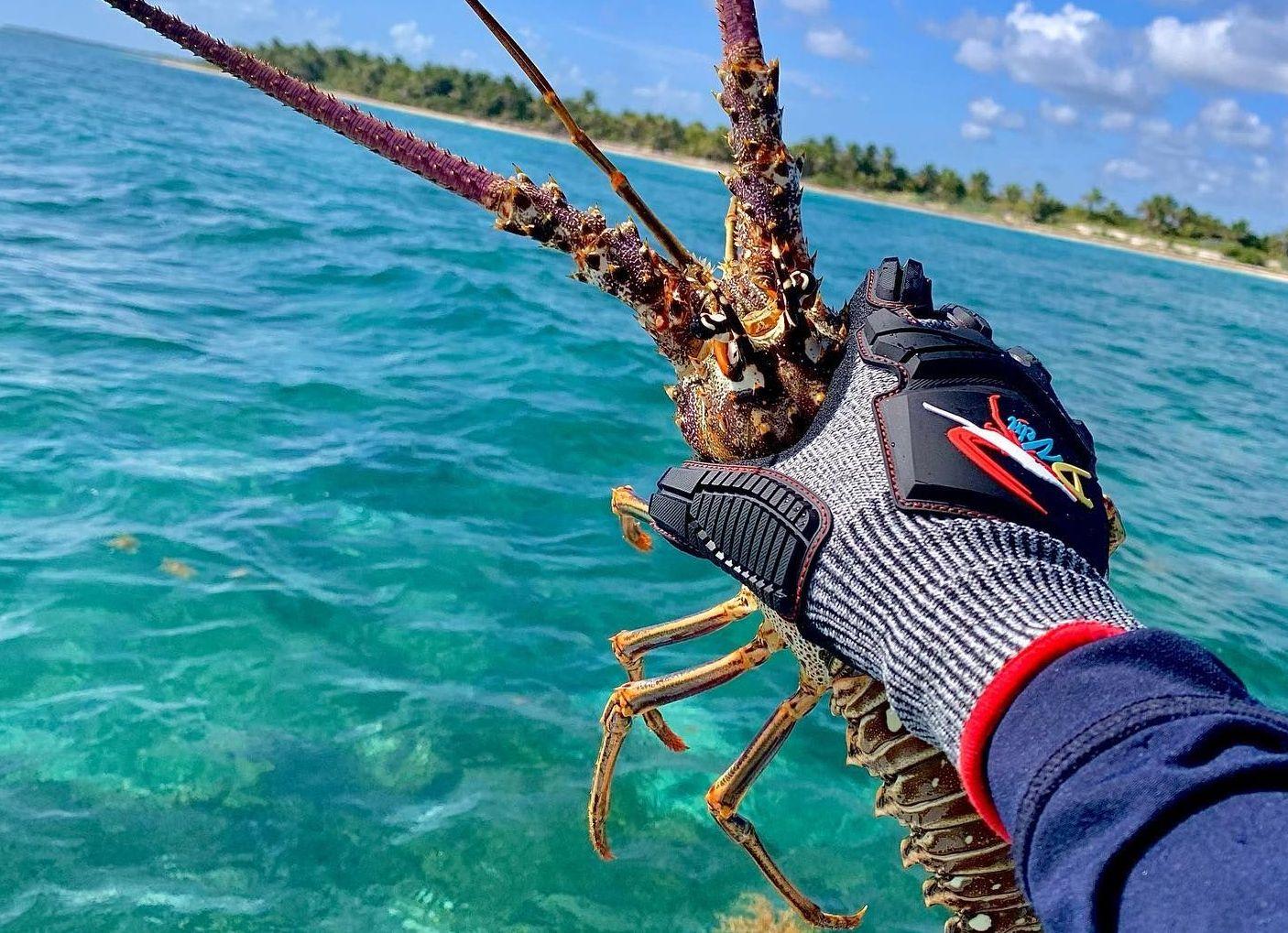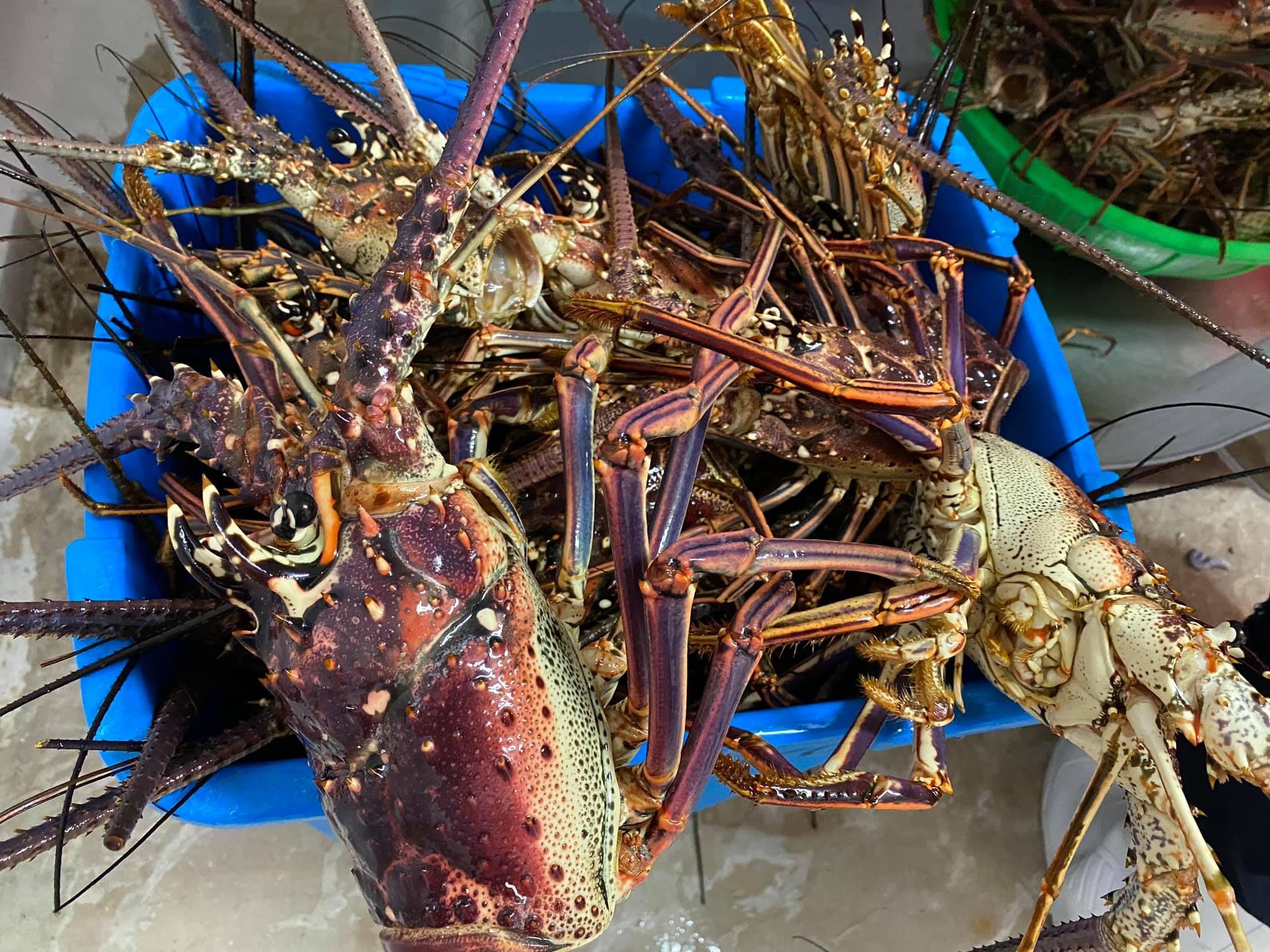In Maya chakay means sea lobster. And from 2015 to 2019 it was the name of the brand promoted by fishermen from cooperatives in Cozumel, Banco Chinchorro, Punta Allen and Punta Herrero, in Quintana Roo, to promote the sale of lobster, their commercial species for more than 60 years.
Caribbean lobster has earned a place in the international market. Fishermen know from information from some of their buyers, mostly fish and seafood traders, that the lobster they catch by hand reaches shops and restaurants in China or Singapore.
While in the domestic market, they do not know what is happening with their product, especially if it has a presence in retail supermarkets such as Chedraui, Walmart, Costco, H.E.B, among others, despite being important points of sale of fish and seafood for Mexico.
“There was a time between 2015 and 2017, when the Chakay brand was there that there was traceability of the product. It arrived (at retail stores) through an intermediary and they would inform us. We had to see our lobster live in the Chedraui Select in Mérida (Yucatán), but now we don't have that information and most of our customers export that product,” explained Miguel Canto, civil engineer and fisherman from the Cozumel Fishing Cooperative.
When Canto talks about traceability, he refers to information about the route taken by the fishing product from capture to consumption. However, in the sector, it is common for fishermen and the end customer to have several wholesale and retail intermediaries who are not responsible for the product's journey.
“We are interested in entering different markets, but what customer we have is a big influence. If the customer is not interested in following traceability or knowing where the product comes from, then they are not going to value it as they wanted or as it should be,” said Canto.
In the case of Caribbean lobster, this is a value in good practices during capture. As it is a species of high commercial value, there is a risk that it will reach a state of overexploitation. So fishermen respect sizes by removing only those larger than 13.5 centimeters from the sea, as established by law. Nor do they extract those that have eggs (are pregnant).
In addition, the cooperative has stood out for the establishment of fishing shelters, which are areas intended for the repopulation of species where capture is not allowed. This contributes to the conservation efforts of the Sian Ka'an Biosphere Reserve, a Protected Natural Area (ANP) where the Cozumel, Vigía Chico and José María Azcorra cooperatives fish. All attached to sustainable practices.
“All the fishermen are aware that these areas are marked and you can't extract any lobster,” Canto explained.
To carry out these efforts, fishing cooperatives also rely on other civil organizations and specialists in the fishing sector, such as Community and Biodiversity (COBI) A.C. and El Colegio de la Frontera Sur (Ecosur).
When they promoted the Chakay brand, they were supported by the organizations Slow Food and Razonatura to brand lobster, monitor the implementation of the brand, infrastructure and promotion at various events.
“They put QR codes on the lobster horns, but unfortunately the customer was the one who discarded that QR code because the issue of traceability didn't work for him and it was a loss because there was a very large investment on the part of the organization,” explains Miguel Canto.
According to the fisherman, this type of code contributed to the traceability process by containing information about the capture and processing of lobster. “Currently, they sell it individually without a package, a label or a QR code that says where that product comes from, who caught it or from which cooperative. There is no information.”

A valuable project
Lobster is currently no longer marketed under the Chakay brand since 2019. In the case of the Cozumel Fishing Cooperative, it was because of “issues that at that time were not well managed in the management of the cooperative”.
However, Miguel Cantó mentions that regarding his place in supermarkets, they did not find commercial agreements that will benefit his entry. Because sometimes there were buyers who asked them for credits despite the fact that fishermen always handle immediate payment or, in the case of supermarkets, they offered prices that did not benefit cooperatives.
“In the supermarkets they wanted to manage the price in their own way and often they couldn't find the cost, so it wasn't affordable,” Canto explained.
Now the Cozumel Fishing Cooperative has 57 fishing partners that are divided between the island of Cozumel and the Sian Ka'an Biosphere Reserve. And they sell lobster in three forms: live, frozen and lobster tail.
Once a customer's order is captured, it is taken to Playa del Carmen or Puerto Morelos for delivery. This is where the fishermen's process ends and it is the intermediaries who continue with the sale and export to the international market.
Fishermen are still interested in having their product traceable. This year, they promoted a Fishery Progress Fisheries Improvement Project (FIP) certification and are collaborating with a customer who buys lobster tail, who has helped them with a new batch QR code labeling for traceability. So they hope to continue reaching other markets.
“The commercial issue has become complicated and it would be good to have new alternatives so as not to rely only on traditional commerce,” said Canto.






Comentarios (0)